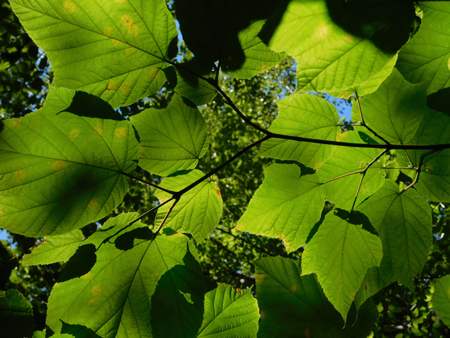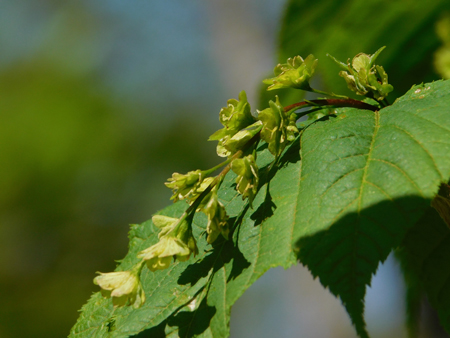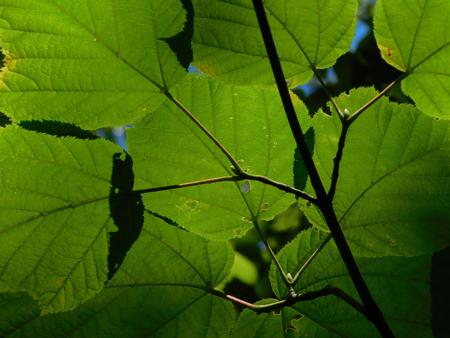Jennifer Blake-Mahmud Awarded Best Oral Paper in the Physiology Section at Botany 2017 Conference

Acer pensylvanicum (Sapindaceae)


Jennifer Blake-Mahmud, a PhD Candidate in the lab of Dr. Lena Struwe, won the award for the Best Oral Paper in the Physiology Section at the Botany 2017 conference in Fort Worth, Texas, in June 2017.
The annual Botany Conference is an international interdisciplinary conference of multiple professional societies including the Botanical Society of America. This year the conference attracted over 700 attendees from more than 35 countries, including over 150 graduate students.
Jennifer presented a talk entitled: "Sugars, stress, and sex-change: environmental sex determination in striped maple" which was based on her studies of sexual plasticity in maple trees. Sexual plasticity is a rare sexual system in flowering plants in which individuals may switch sex expression over the course of their lives in response to environmental or developmental factors. Striped maple is one of these rare sexually plastic species and common in the forests of northern New Jersey.
Following experiments started in 2015, Jennifer is finding that severely damaged trees have much higher odds of switching to female sex expression than undamaged trees, while female trees are more likely to die in general. She is also finding that female trees, regardless of size, have higher levels of stored sugars than do males. Males switching sex to female had higher sugar levels the prior winter than did males that stayed male. These findings shed some light on how and why an individual tree might switch sex from year to year. They also suggest that we might see increased numbers of females in striped maple populations following extreme weather events, due to the damage sustained by the understory trees. Increased proportions of female trees in populations may change mortality rates, seed set, and persistence of these trees and the recruitment of other desirable hardwoods in the forest community.
The work Jennifer presented at Botany 2017 is part of her Ph.D. dissertation.
July 2017


